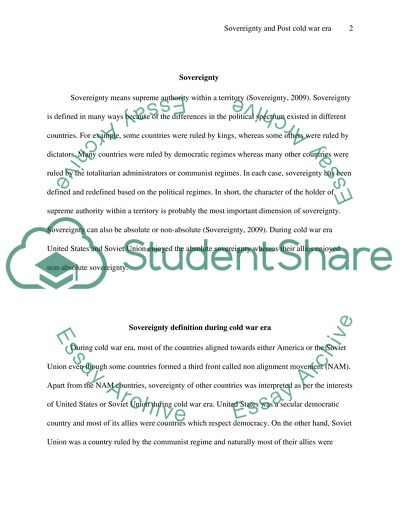Cite this document
(“In what respects has sovereignty been redefined in the post-Cold War Essay”, n.d.)
Retrieved from https://studentshare.org/history/1565633-in-what-respects-has-sovereignty-been-redefined-in-the-post-cold-war-era
Retrieved from https://studentshare.org/history/1565633-in-what-respects-has-sovereignty-been-redefined-in-the-post-cold-war-era
(In What Respects Has Sovereignty Been Redefined in the Post-Cold War Essay)
https://studentshare.org/history/1565633-in-what-respects-has-sovereignty-been-redefined-in-the-post-cold-war-era.
https://studentshare.org/history/1565633-in-what-respects-has-sovereignty-been-redefined-in-the-post-cold-war-era.
“In What Respects Has Sovereignty Been Redefined in the Post-Cold War Essay”, n.d. https://studentshare.org/history/1565633-in-what-respects-has-sovereignty-been-redefined-in-the-post-cold-war-era.


